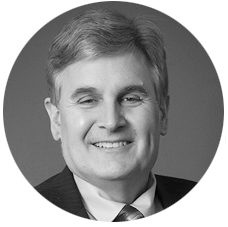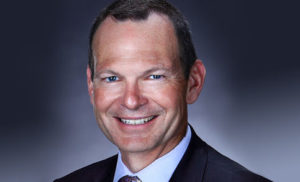An executive order by California Gov. Gavin Newsom last week is the most aggressive yet among the directives issued by 13 states that require workers compensation insurers to pay at least some COVID-19 claims.

Pressure is growing on workers compensation systems across the country to cover the cost of treating and supporting workers caught up in the pandemic. In light of mandated social distancing, there’s a strong argument to be made that work is the cause of any COVID-19 infection suffered by a front-line worker, said Jennifer Wolf, who heads an international organization of workers comp regulators.
But employers and insurers did not set aside reserves counting on paying for a pandemic, creating what Wolf calls a workers comp “Catch 22.” That is leading to pressure by some business and insurance groups for the creation of a federal backstop, similar to the Terrorism Risk and Insurance Act, to take a share of the costs off of overburdened workers compensation systems.
“It needs to be a part of the national conversation,” said Wolf, executive director of the International Association of Industrial Accident Boards and Commissions (IAIABC). “I think this is a situation that is truly a national concern. There have been incidents in the past where there have been federal solutions.”
Presumptions Cost Billions
For the moment, state regulators have been focusing on easing the path to workers comp benefits for those who have to work with the public during the outbreak.
Up to now, governors have created presumptions that favor claims by first responders, health care workers and some front-line employees in specified occupations. Kentucky Gov. Andy Beshear pushed the envelope furthest — decreeing a presumption for workers in grocery stores, child care centers, domestic violence shelters and other occupations.
Newsom’s order applies to every worker in California who was required to work at a place away from home. Any of those workers who is sickened by COVID-19 from the day Newsom issued a stay-at-home order on March 19 until July 5 will get the benefit of the doubt when filing a workers comp claim.
The governor may have handed California employers and insurers a $33.6 billion workers comp bill. That is the worst-case scenario projected by the state’s ratemaking agency, the Workers Compensation Insurance Rating Bureau, if every essential worker who is diagnosed with COVID-19 files a claim and is paid benefits. The WCIRB’s mid-range projection was for $11.2 billion in losses, but even that equals 61 percent of current workers comp costs in the state.
The bureau also included an optimistic projection that calculated $2.2 billion in losses for California. In that scenario, only 4 percent of health care workers and less than 1 percent of other workers file COVID-19 claims.
The National Council on Compensation Insurance released its own projection of potential costs for the 38 states and the District of Columbia, where it collects claims data. Worst case: losses of $81 billion. Best case: $2 billon.
There are several reasons one might bet on less than the worst-case outcome projected by the WCIRB.
For one thing, Newsom’s order expires after 60 days, while the bureau’s estimate presumes the presumption will apply throughout 2020, said WCIRB Chief Actuary David Bellusci.
Further, the bureau assumed the presumption would be conclusive while Newsom’s directive allows employers to rebut the presumption by presenting evidence that the worker contracted the virus elsewhere, Bellusci said.
What’s more, California’s efforts to control the spread of the virus through social distancing and business closures appear to have been effective. As of Friday, the state had an infection rate of 1,608 out of one million, less than half the national infection rate, according to The COVID Tracking Project. The number of new cases reported each day had been holding steady for the past two weeks at about 1,500 to 2,000.

Bellusci said only one thing is clear about the new coronavirus’ impact on workers comp: Premiums are going to plummet because of unprecedented unemployment. Claims will initially decline as a natural course of those layoffs, but Bellusci said the state may have an uptick later because of post-termination claims. California statutes generally prohibit any claims for injury after a worker is terminated, but cumulative trauma claims are allowed.
Alex Swedlow, president of the California Workers Compensation Institute, said Newsom’s order may cover 85 percent of the state’s workforce. He pointed to two areas of concern in emails.
The requirement that workers file claims within 14 days of their last possible work exposure may prove “problematic” if testing remains limited, he said.
The order also requires employers to decide whether to accept or deny a COVID-19 claim within 30 days. Normally the deadline is 90 days.
“The 30-day window makes it easier to file a claim, so you can expect more low-end severity claims,” Swedlow said in an email. “That said, California is doing relatively well in terms of COVID cases. The accepted claim can still be challenged after the 30-day window if new evidence emerges or with a negative test result.”
Essential Workers
California’s residual market insurer, State Compensation Insurance Fund, decided on it own to pay COVID-19 claims for “essential workers” identified in the governor’s stay-at-home order on April 20, long before Newsom ordered a presumption. The carrier projects those claims will cost $115 million, a relative trifle when compared to State Fund’s $6.5 billion policyholder surplus.
State Fund President Vern Steiner explained in a blog post that State Fund’s insured book of business has far fewer first responders and health care workers than the insured population that the WCIRB examined. The bureau’s analysis projected much higher infection rates for that population.

Further, State Fund’s estimate envisioned the carrier dropping the presumption once the governor lifts stay-at-home orders that continue to restrict businesses. Steiner said State Fund projects that the order will be lifted in June, while WCIRB projected a presumption continuing for the entire year.
Steiner said as of April 27, State Fund had received only 21 claims from its insured book of business, which represents 10.5 percent of the state’s insured exposure. (The carrier also administers self-insured claims by state government employees.)
“More than half of those claims has come from one bankrupt hospital system that came to us in January because of their bankruptcy,” Steiner said. “The majority of those claims are showing a positive COVID-19 test result. The majority of the other claims we have received are showing a negative test result. Sometimes multiple negative results.”
The State Fund president closed by suggesting that with stay-at-home orders in place, there is little ground to deny claims from workers who were not sent home.
“From my point of view, as soon as the shelter-in-place orders started differentiating exposure for essential workers and the general population, I believed that these claims would be compensable unless there was evidence that the exposure came from a non-work-related source,” Steiner said. “I hope the rest of the insurance and self-insured community sees this as well.”
Wolf made much the same point in one of her “Accidentally” podcasts that she posts on the IAIABC website.
“The public has been asked to stay at home to limit exposure and the spread of disease,” she said. “It seems difficult to argue that essential workers are not exposed to COVID-19 by the very act of going to work.”
Wolf went on to say that workers comp loss reserves are built on actuarial projections that did not include a pandemic. Generally, workers compensation is not asked to pay for disability caused by illnesses to which the general public is exposed.
Wolf noted that Risk Insurance Management Society on April 20 sent a letter to congressional leaders asking for legislation to create a federal backstop that would allow businesses to recoup unprecedented business interruption losses. She said a similar mechanism could be employed for workers comp.
The Pandemic Risk Insurance Act, a draft bill introduced by Rep. Maxine Waters, D-Calif., would provide a federal loss-sharing program for insurance claims relating to losses resulting from a certified pandemic or epidemic, according to RIMS, which supports the legislation.
Footing the Bill
While some wait for Congress to come to the rescue, California employers are unhappy that the governor is forcing them to foot the bill for more worker claims.
The California Chamber of Commerce said in a statement that Congress has already expanded the safety net for workers sickened by COVID-19 through emergency legislation that expands unemployment benefits and mandates 10 work days of paid sick leave, with the cost reimbursed by the U.S. Treasury.
“It seems that the governor’s goals can be achieved using federal dollars without placing even more financial strain on California employers,” the Chamber said in a statement. “Imposing a legal presumption that any employee who contracts the coronavirus is covered by workers compensation benefits shifts the cost of this pandemic to employers.”
The Workers Compensation Action network, which advocates for California employers, acknowledged that Newsom had mitigated the cost of his presumption order by limiting its duration to 60 days and requiring workers to present a confirmed diagnosed within 14 days of work.
“Our fundamental concern with a broad suspension of the work-causation standard is that it distorts the basic bargain of workers comp and makes employers responsible for COVID-19 cases contracted outside of work,” said WCAN spokesman Jerry Azevedo in a prepared statement.
“Even ‘rebuttable presumptions’ undermine the ability of employers to determine whether the illness is related to work. The practical result is that employers will pay workers comp benefits for COVID-19 even where there is no evidence it was related to work.”
Diana Rich, a public member representing California employers on the WCIRB’s board of directors, said the impact of the pandemic on California’s workers is mitigated somewhat by the state’s “best-in-the-state” disability insurance plan. She said she’s not in favor of Newsom’s directive, as presumptions are “another step toward socialized medicine.”
But Rich said she agreed with Wolf that national lawmakers should start planning for a federal backstop for workers comp. She said she doesn’t know if anything can be passed soon enough to take care of this year’s batch of COVID claims, but that doesn’t mean the nation cannot prepare for another pandemic.
“This is a good effort, to look to the future,” Rich said. “I’m glad to see people looking ahead and making plans now.”
*This story appeared previously in our sister publication Claims Journal.





















 Berkshire-owned Utility Urges Oregon Appeals Court to Limit Wildfire Damages
Berkshire-owned Utility Urges Oregon Appeals Court to Limit Wildfire Damages  Experts Say It’s Difficult to Tie AI to Layoffs
Experts Say It’s Difficult to Tie AI to Layoffs  Execs, Risk Experts on Edge: Geopolitical Risks Top ‘Turbulent’ Outlook
Execs, Risk Experts on Edge: Geopolitical Risks Top ‘Turbulent’ Outlook  Earnings Wrap: With AI-First Mindset, ‘Sky Is the Limit’ at The Hartford
Earnings Wrap: With AI-First Mindset, ‘Sky Is the Limit’ at The Hartford 





